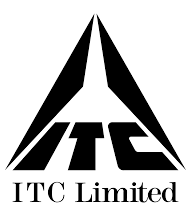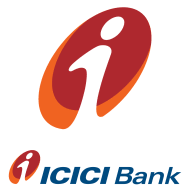- Degree Course Type
- Entry Level Qualification
- Degree Course Duration
- Course Fields
- Degree Course Entrance Exam
- Average Course Fee
- Average Salary Offered
- Course Details
- Course Highlights
- About Course
- Why Choose Course And Required Skills
- Eligibility
- Entrance Exams Details
- Degree Course Syllabus
- Top Colleges
- Course Fees
- Top Recruiters And Salary
- Course Scope And Career Options
- Admission Process
DID YOU KNOW?
This section was developed with support from NTPC CSR
Course Details
CHARTERED FINANCIAL ANALYST
Degree Course Type
Certificate
Entry Level Qualification
Class 10+2
Degree Course Duration
4 Year
Course Fields
Commerce
Degree Course Entrance Exam
Average Course Fee
100000 - 500000
Average Salary Offered
650000 - 4100000
Course Highlights
The detailed highlights of Chartered Financial Analyst (CFA) course are tabulated below:
Course Name | Chartered Financial Analyst |
Short Name | CFA |
Course Level | Graduation |
Course Stream | Commerce and Finance |
Course Duration | 1.5 Years - 4 Years |
Course Type | Certificate Course |
Eligibility Criteria | 10+2/ Relevant Bachelor’s Degree |
Selection Procedure | Merit-Based |
Chartered Financial Analyst Course Fees | INR 1,00,000 - 5,00,000 |
Job Prospects | Portfolio Manager, Risks Manager, Market Research Analyst, Chartered Financial Analyst, Investment Manager, Business Consultant, Supply Chain Analyst |
Placement Opportunities | Banking Sector, Auditing Firms, Auditing Departments, Auditing Companies |
Average Salary | INR 6,50,000 - INR 41,00,000 |
About Course
Chartered Financial Analyst (CFA) is a professional course that can be pursued after completing 10+2 or graduation from recognized institutes. To pursue the Chartered Financial Analyst course after class 12, one has to undergo the 3 levels of examinations starting with the CFA Foundation Level 1 followed by CFA Level 2, and the final level is the CFA Level 3 exams.
The Chartered Financial Analyst course is offered by the Institute of Chartered Financial Analysts of India. CFA is one of the most reputed designations in investment and management across the world. CFA professionals can expand their careers in the corporate as well as financial fields.
The eligibility requirements for becoming a CFA are graduating from any field being in the final year of graduation or having completed four years of work experience and holding an international passport. The minimum length of the CFA program is two years. The typical CFA program lasts three to four years.
After completing the CFA levels, candidates are offered lucrative job opportunities and reputed profiles like Risk Manager, Private Banker, Investment Manager, Chief Financial Officer, Chartered Financial Analyst, Business Consultant, etc. In India, the average CFA compensation ranges from INR 6,00,000 to INR 20,00,000.
The Chartered Financial Analyst course fee ranges between INR 2 lakhs to 3.5 lakhs. Some of the top colleges offering Chartered Financial Analyst (CFA) course includes the International College of Financial Planning Lucknow & New Delhi, Narayana Business School, Ahmedabad, G.D. Goenka Gurugram, Global Center for Entrepreneurship & Commerce, Jaipur, Central India Institute of Management Studies, Jabalpur, etc.
Why Choose Course And Required Skills
Chartered Financial Analyst course is one of the most well-known commerce courses. Chartered Financial Analyst professionals are in huge demand throughout India and abroad and can get lucrative opportunities to work. Chartered Financial Analyst professionals are given almost similar pay and respect as a CA or a CS. The Chartered Financial Analyst course fees are also very high and the Chartered Financial Analyst salary is good.
Given below are some of the benefits of pursuing a Chartered Financial Analyst course:
1. Global Certification: This certification is regarded as the golden standard of professional credentials for investment professionals around the world. This certification is accepted in more than 160 countries across the globe.
2. Wide Opportunities: There is a boom of job opportunities in the financial market as well as the investment banking sector for Chartered Financial Analyst professionals. These industries are expected to grow in the coming years and thus job scope for Chartered Financial Analyst professionals will also increase.
3. Scope of Advancing Career: After pursuing the Chartered Financial Analyst course, the Chartered Financial Analyst graduates are offered high positions in financial businesses. Chartered Financial Analyst professionals are hired in leading world companies such as HSBC, Wells Fargo, Morgan Stanley, Bank of America, RBC, UBS, and JP Morgan Chase. Thus, the scope of career investment is high in this field. Chartered Financial Analyst professionals live a secure life in the future.
4. Decent Remuneration: After completing the Chartered Financial Analyst course, these Chartered Financial Analyst graduates can earn anywhere between Rs. 3,50,000 to 35,00,000 LPA depending upon their skills. According to the Chartered Financial Analyst Institute, CFA graduates earn around Rs. 95,00,000 LPA in the international market.
5. Exclusive Alumni Status: With a robust career, the Chartered Financial Analyst course also gives the chance to become top alumni engaged in top companies. The popularity of the Chartered Financial Analyst course is so much that every year the number of Chartered Financial Analysts on the list is increasing by 5-7%.
6. Development of Financial Skills: The course helps graduates with developing skills required in financial markets. The Chartered Financial Analyst curriculum comprises subjects such as wealth planning, derivatives, portfolio management, corporate finance, alternative investments, etc. All of these help an individual develop a better grasp of the financial sector, its markets, and services.
7. Option of Entrepreneurship: Individuals after completing the Chartered Financial Analyst course also have an option of using their Chartered Financial Analyst certification and the acquired skill set to practice independently as a Chartered Financial Analyst and begin their own Chartered Financial Analyst consultancy firms. Investment management is the best entrepreneurial option for Chartered Financial Analysts as around 71% of Indians prefer to take financial advice from a qualified professional.
The Chartered Financial Analyst exam is quite competitive and challenging, and the entire journey of the CFA exam demands knowledge of the subjects along with the candidates' diligence, endurance, and willpower.
Required Skills
Chartered Financial Analyst is considered a holistic profession; thus, only passing all the levels of Chartered Financial Analyst exams is not enough. Clearing exams will definitely grant certification but one needs to acquire the skill set of a Chartered Financial Analyst as well. So, in order to be a Chartered Financial Analyst, the professionals need to have the following skill-set:
1. Time Management Skills
2. Diligence
3. Foundational Investment Skills
4. Discipline
5. Integrity
6. Analytical Skills
7. Decision-Making Skills
8. Attention to Details
9. Self-Motivation Skills
10. Leadership
Eligibility
The following are the eligibility norms to pursue the Chartered Financial Analyst course.
1. The candidates must have completed their bachelor’s degree or equivalent degree in Commerce stream from a recognized university.
2. Candidates who are in the final year of their bachelor’s degree can also register. However, they must pass their graduation course prior to the date of registering for the Chartered Financial Analyst Level 2 examination.
3. Candidates must also have a minimum work experience of 4000 hours or an amalgamation of a total of 4000 hours of work experience or higher education obtained over a minimum period of 3 consecutive years before registering for the Chartered Financial Analyst Level 1 examination.
4. Further, the work experience of candidates pursuing an internship or articles or practicing independently in their own businesses will also be considered as work experience, if it is a paid one. It is not essential to work in the field of investment market but candidates can be from any field.
5. The candidates must also have key skills such as business communications, critical thinking, leadership, problem-solving, teamwork, time management, analytical skills, adaptability, and professional judgment.
6. An essential Chartered Financial Analyst norm is that the candidates must also have an international passport.
7. Moreover, one must also be fluent in the English language to opt for the course of Chartered Financial Analyst.
8. Individuals are also required to put forward a professional and valid compliance statement.
Entrance Exams Details
1. The Chartered Financial Analyst exam does not require any entrance exam for the admission process.
2. The admission to this course is based upon a merit list prepared on the basis of marks obtained in a graduation degree. The institute also takes prior work experience into consideration while preparing the merit list.
3. The candidates need to register and create their official accounts on the Chartered Financial Analyst website before enrolling for the Chartered Financial Analyst examination.
4. The aspirants can choose the different exam cycles and slots according to their own preferences for the different levels of the Chartered Financial Analyst exam.
5. Aspirants will only be able to register for the next CFA Level after they pass the previous Chartered Financial Analyst Level.
Degree Course Syllabus
The Chartered Financial Analyst Syllabus is divided into 3 levels; Chartered Financial Analyst Level 1, Chartered Financial Analyst Level 2, and Chartered Financial Analyst Level 3. Individuals will only be able to move to the next level after clearing the previous level of the Chartered Financial Analyst examination.
The Chartered Financial Analyst Syllabus deals with subjects like investment decision-making, investment depth, financial accounting, stock market, and derivatives.
Chartered Financial Analyst Subjects
The Chartered Financial Analyst Programme comprises three levels and each level of the Chartered Financial Analyst course comprises a six-hour exam. Candidates have to pass these three extensive exams in order to get the Chartered Financial Analyst credentials. There is a specific weightage given to every subject at different levels of the Chartered Financial Analyst course. Following are the levels and subject weightage:
Chartered Financial Analyst Course Level 1: Basic aspects of investment analysis are covered at this level. The level comprises a total of ten topics that will be covered using investment tools.
Chartered Financial Analyst Course Level 2: This phase comprises the application of investment tools and topics that are focused on the valuation of different types of assets.
Chartered Financial Analyst Course Level 3: In this level, an emphasis is laid on synthesizing all of the concepts and analytical methods in order to learn their applications for wealth planning and effective portfolio management.
Chartered Financial Analyst Syllabus: Core Topics
The complete core topics of the Chartered Financial Analyst Syllabus are given below:
1. Ethical and Professional Standards
2. Economics
3. Quantitative Methods
4. Financial Statement Analysis
5. Equity Investments
6. Fixed Income
7. Corporate Issuers
8. Derivatives
9. Portfolio Management and Wealth Planning
10. Alternative Investments
Top Colleges
College Name | Chartered Financial Analyst Fees |
International College of Financial Planning, Lucknow | INR 40,000 |
Shri Chimanbhai Patel Institute of Professional Training, Ahmedabad | INR 65,000 |
Narayana Business School, Ahmedabad | INR 1,25,000 |
International College of Financial Planning, New Delhi | INR 45,000 |
Global Center for Entrepreneurship & Commerce (GCEC), Jaipur | INR 1,09,000 |
Central India Institute of Management Studies, Jabalpur | INR 32,500 |
G.D. Goenka, Gurugram | INR 3,00,000 |
Lovely Professional University | _ |
Bennett University Noida | INR 3,60,000 |
CIIMS Raipur | _ |
CIIMS Jabalpur | INR 30,500 |
Amity University Noida | _ |
Indian Institute of Business Management & Studies (IIBMS) Mumbai | INR 32,000 |
Mansukh Institute of Financial Markets, New Delhi | _ |
Chartered Financial Institute, Mumbai | _ |
FTMS Global Academy, Chennai | _ |
CIIMS Nagpur | INR 50,500 |
Course Fees
The detailed list of institutes offering Chartered Financial Analyst courses in India along with their fee details are listed below. Chartered Financial Analyst Fees vary from college to college but in most cases, it is affordable. Candidates can go through the prospectus available on the official websites of all these institutes and read them thoroughly.
College Name | Chartered Financial Analyst Fees |
International College of Financial Planning, Lucknow | INR 40,000 |
Shri Chimanbhai Patel Institute of Professional Training, Ahmedabad | INR 65,000 |
Narayana Business School, Ahmedabad | INR 1,25,000 |
International College of Financial Planning, New Delhi | INR 45,000 |
Global Center for Entrepreneurship & Commerce (GCEC), Jaipur | INR 1,09,000 |
Central India Institute of Management Studies, Jabalpur | INR 32,500 |
G.D. Goenka, Gurugram | INR 3,00,000 |
Lovely Professional University | _ |
Bennett University Noida | INR 3,60,000 |
CIIMS Raipur | _ |
CIIMS Jabalpur | INR 30,500 |
Amity University Noida | _ |
Indian Institute of Business Management & Studies (IIBMS) Mumbai | INR 32,000 |
Mansukh Institute of Financial Markets, New Delhi | _ |
Chartered Financial Institute, Mumbai | _ |
FTMS Global Academy, Chennai | _ |
CIIMS Nagpur | INR 50,500 |
Top Recruiters And Salary
Chartered Financial Analyst Jobs are growing rapidly. Chartered Financial Analyst Salaries are also well paying. The top recruiters who hire professionals who have Chartered Financial Analyst course certificates and Chartered Financial Analyst course skill sets include:
SBI Bank | Emami Agrotech Ltd. |
ICRA | Credit Suisse |
Crisil | Citigroup |
PwC | Axis Bank |
JP Morgan & Co | HDFC Bank |
Bharti Airtel | Deloitte |
HSBC | The Goldman Sachs Group Inc |
ITC | Ernst & Young |
ICICI Bank | Hindustan Unilever Ltd. |
Aditya Sun Life | Reliance Industries Ltd. |





Chartered Financial Analyst Salary may vary depending on several factors like prior work experience, skill set, etc.
Job Profile | Chartered Financial Salary |
Risk Manager | INR 10,00,000 LPA |
Private Bankers | INR 9,00,000 LPA |
Investment Manager | INR 7,00,000 LPA |
Chief Executive Officer | INR 41,00,000 LPA |
Chief Financial Officer | INR 43,00,000 LPA |
Chartered Financial Analyst | INR 9,50,000 LPA |
Business Consultant | INR 11,00,000 LPA |
Market Research Analyst | INR 4,50,000 LPA |
Portfolio Manager | INR 11,45,000 LPA |
Course Scope And Career Options
CFA career opportunities exist for graduates in abundance. After completing the three consecutive levels, the CFA jobs in India are available for professionals. Students can work in different industries such as Banking Sectors, Auditing Department, Auditing Companies, and Auditing Firms. There is a lot of demand for the CFA Course, as obtaining the certificate is not easy, and due to that reason, the graduates of this course tend to be above average than their peers. Below are some of the popular jobs after CFA are done by graduates.
Tax Auditing
Financial Consultancy
Managing Treasury
Below is a list of career prospects along with the responsibilities of CFA graduates:
1. Portfolio Manager
Portfolio managers are financial advisors who assist you in making investment choices. Client-focused advisors who manage individual or corporate investments are typically known as portfolio managers. The following are the responsibilities of the portfolio manager:
Implementing investment strategies to assist clients in achieving their objectives
Portfolio development and management
When to trade securities and when not to trade securities
2. Risk Analyst/ Risk Manager
Businesses employ risk analysts and risk managers to reduce the negative consequences of risk events such as natural disasters, operational risks, and financial risks. Professionals in risk management use techniques or precautions to prevent future risks. Risk analysts assess future risks, while risk managers put strategies to deal with unforeseen circumstances.
Risk managers and analysts are responsible for a variety of tasks, including;
Using risk information management software to interpret risk data (RIMS)
Consider the potential for future risks to have a negative impact.
Determine which practices may put you at financial risk.
3. Research Analyst
CFA charter holders may be able to find work conducting research and analysis in the investment industry. Credit analysts and equity analysts are two types of analysts who analyze investment research. Research analysts' duties and responsibilities include gathering and analyzing data on investable securities and companies and developing profit models. Portfolio managers and clients can rely on research analysts to conduct assessments and make recommendations. Some of the skills required to work as a research analyst are listed below.
Data examination
Examine the industry and the company.
A financial assessment
4. Investment Banker
Investment bankers are professionals with experience in the financial services industry who specialize in financing and mergers and acquisitions. These professionals' services benefit start-ups, established organizations, and governments alike. In return, investment bankers expect fixed fees or fees. Investment bankers contribute significantly to the company's growth. They have the following responsibilities as an investment banker:
Book building, an initial public offering (IPO), prospectus preparation, and investment meetings are all examples of financing methods. Issued or sold securities as part of a private placement, mergers, sales, and acquisitions are made.
5. Private Wealth Manager
HNWI Managers, as the name implies, are professionals who assist HNWI or HNWI investors with investment management and financial planning. The role of private wealth managers has grown significantly as the fintech industry has grown. Support in analyzing the complexities of financial markets can benefit private investors. These people also help their families manage their investments. The following are some of the services provided by a private wealth manager:
Management of a Portfolio
Real estate and retirement goals
Service of taxation
Admission Process
Know the Chartered Financial Analyst admission process by going through the points given below:
1. The Chartered Financial Analyst exam does not require any entrance exam for the admission process.
2. To pursue the Chartered Financial Analyst course, individuals must be admitted to the Chartered Financial Analyst Institute.
3. The admission to this course is based upon a merit list prepared on the basis of marks obtained in a graduation degree. The institute also takes prior work experience into consideration while preparing the merit list.
4. The candidates need to register and create their official accounts on the Chartered Financial Analyst website before enrolling for the Chartered Financial Analyst examination.
5. The individuals can also opt for scholarships at the time of registration for the Chartered Financial Analyst course.
6. The aspirants can choose the different exam cycles and slots according to their own preferences for the different levels of the Chartered Financial Analyst exam.
7. Aspirants will only be able to register for the next CFA Level after they pass the previous Chartered Financial Analyst Level.


